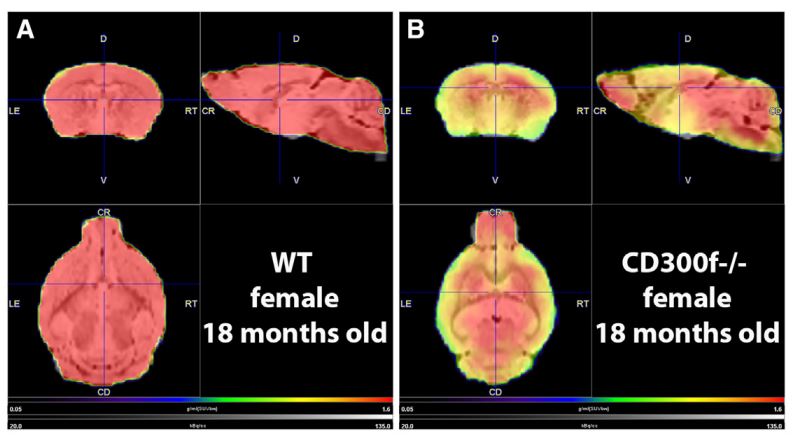A Uruguayan study revealed, in mice, that the lack of a receptor present in the cells of the immune system significantly reduced the life expectancy and health of these animals. This deficiency also led to increased cognitive impairment and cellular aging, especially in females, according to the research which was published in the journal Cell Reports.
The immune receptor – named CD300f – is a protein that modulates inflammation and cellular metabolism and is present on different cell types of the immune system such as myeloid cells, macrophages and microglia.
For years, CD300f has been studied by the Laboratory of Neuroinflammation and Gene Therapy (LNTG) at the Institut Pasteur de Montevideo, which, with funding from the Banco de Seguros del Estado (BSE), has made it possible to learn more about its function. For example, in 2020, researchers identified that this protein is also involved in the regulation of depression, particularly in women.
To advance our understanding of this receptor, the new work hypothesized that CD300f could have a significant impact on aging-related processes.
To this end, over several years, the researchers studied groups of mice with the protein present and absent, and observed that in animals lacking the CD300f receptor there was an earlier onset of pathologies associated with aging such as cognitive deficits, motor coordination problems, tumors, and systemic inflammation or inflammation of different organs such as the brain, liver and lungs. There was also an important effect of sex, because females were more affected than males.
“Understanding that CD300f – and also myeloid cells such as macrophages and microglia – can alone determine the rate of onset of pathologies associated with aging brings us closer to understanding how we age, and contributes to the design of strategies to regulate its action, for example, by using this immunoreceptor as a potential drug target or biomarker” of predisposition to premature aging,pointed out Hugo Peluffo, researcher in charge of the LNTG and professor at the Facultad de Medicina (Universidad de la República).
Peluffo pointed out that from a methodological point of view, a valuable feature of this study is that it was carried out by following several groups of animals in detail for 30 months. Thus, it was possible to reflect the actual aging process, instead of using accelerated aging models that do not faithfully represent this process, which involves the gradual accumulation of changes with age.
“We will continue to investigate the consequences of CD300f immunoreceptor dysfunction on brain aging, in particular on microglia, which are the immune system cells within the nervous system. In addition, we will study the possible role of this immunoreceptor in Alzheimer’s disease.“, he added.
This line of work on the role of CD300f in aging was led by Frances Evans, member of the LNTP of the IP Montevideo, and had the collaboration of other laboratories of the institute, Facultad de Medicina de la Universidad de la República, the Centro Uruguayo de Imagenología Molecular Imaging and the University of Barcelona.


